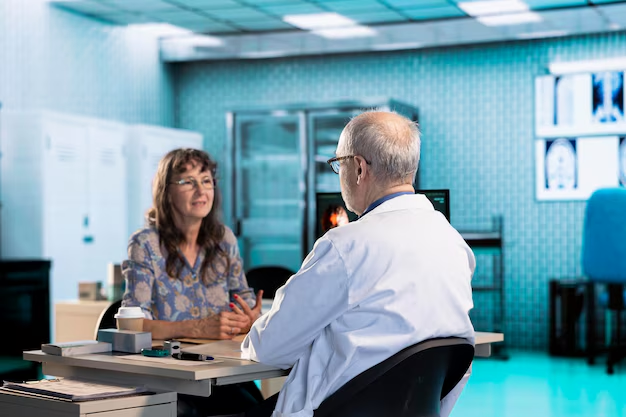Understanding Lymphoma: Is It Curable?
Lymphoma, a type of cancer that affects the lymphatic system, is often a source of anxiety and uncertainty. However, the word "curable" in this context is complex, involving a variety of factors such as the type of lymphoma, the stage at diagnosis, and available treatment options. In addressing the question, "Is lymphoma curable?" it's important to explore each angle of this intricate subject in depth. Let's delve into what makes lymphoma unique, the treatments available, and the outlook for individuals diagnosed with this condition.
What is Lymphoma?
Lymphoma is a cancer that starts in the lymphocytes, a type of white blood cell that plays a critical role in the body's immune system. The lymphatic system, where these cells are located, includes the lymph nodes, spleen, thymus gland, and bone marrow. When lymphoma occurs, lymphocytes grow and multiply uncontrollably, leading to swollen lymph nodes and other complications.
Types of Lymphoma
Lymphoma primarily comes in two major types: Hodgkin lymphoma (HL) and non-Hodgkin lymphoma (NHL). Both types have unique characteristics and treatment approaches.
Hodgkin Lymphoma (HL): This type is identified by the presence of Reed-Sternberg cells, a specific type of abnormal cell. It's often more predictable in its spread and generally considered more treatable than some forms of NHL.
Non-Hodgkin Lymphoma (NHL): A broad category with many subtypes, NHL has a wide array of behaviors and treatment responses. These can range from slow-growing (indolent) to very aggressive types.
Factors Influencing Curability
Stage at Diagnosis
The stage of lymphoma at the point of diagnosis is crucial. Early-stage lymphoma (Stage I or II) often has a better prognosis and can be more amenable to successful treatment, whereas advanced stages (Stage III or IV) might involve more complex treatment strategies.
Lymphoma Type
As mentioned, Hodgkin lymphoma is often considered highly treatable, especially when caught early. Many non-Hodgkin lymphomas are also curable, although the outlook may vary significantly depending on the specific type and individual health factors.
Treatment Advances
Advancements in treatment have significantly impacted the curability of lymphoma over the years. Current options include:
Chemotherapy: The mainstay of lymphoma treatment, chemotherapy uses drugs to kill cancer cells and is often combined with other therapies for increased effectiveness.
Radiation Therapy: Often used for Hodgkin lymphoma or localized non-Hodgkin lymphomas, radiation can target specific areas where cancerous cells are located.
Immunotherapy: This innovative approach uses the body's immune system to fight cancer. Drugs like checkpoint inhibitors and CAR T-cell therapy have revolutionized treatment for some types of lymphoma.
Stem Cell Transplant: Particularly used after chemotherapy, stem cell transplant helps restore bone marrow damaged during treatment, allowing for higher doses of chemotherapy to be used.
What Does "Cure" Mean in Lymphoma?
The term "cure" in the context of cancer can vary. For some, it means achieving complete remission, where no signs of cancer are present. For others, it signifies a specific duration of being cancer-free.
Remission vs. Cure
Complete Remission: When symptoms and signs of lymphoma disappear, it’s called remission. Further steps might still be necessary to achieve a cure.
Long-term Survival: Many medical professionals define a cure as being free from cancer symptoms for a prolonged period, often 5 years or longer.
Living with Lymphoma
Lymphoma treatment doesn't just aim for outright cure but focuses equally on quality of life and managing symptoms.
Ongoing Care and Monitoring
Post-treatment, regular follow-ups are crucial. These monitoring sessions help manage any late effects of treatment and catch potential recurrences early.
Lifestyle Changes
A healthy lifestyle, including a balanced diet and regular exercise, supports recovery and long-term health. Stress management and emotional well-being are also vital, often involving support groups or counseling.
Survivorship and Quality of Life
Even if lymphoma isn’t cured outright, many patients live long and fulfilling lives post-diagnosis, thanks to medical advancements and comprehensive care strategies.
Personal Stories: Triumph Against Lymphoma
Many individuals have successfully overcome lymphoma, either entering remission or achieving a long-term survival status. These stories illuminate the human side of battling and beating cancer.
Case Studies
Case of Early Diagnosis: John's story of a Hodgkin lymphoma diagnosis in its early stages highlights the importance of early detection and effective chemotherapy in achieving remission.
Aggressive NHL: Emily's experience with an aggressive form of NHL showcases how a combination of chemotherapy, immunotherapy, and a stem cell transplant facilitated long-term remission.
Final Thoughts: Hope and Outlook
Lymphoma, though complex, is increasingly falling into the category of treatable cancers, with many patients experiencing full recoveries or long, healthy lives after diagnosis. Understanding the disease, exploring treatment options, and staying informed about your health can significantly impact outcomes.
Key Takeaways
- Early detection often improves the likelihood of successful treatment.
- Treatment types vary significantly and are personalized based on lymphoma type and stage.
- Quality of life remains a priority throughout the treatment journey and beyond.
- Continued advances in therapy and personalized care make lymphoma increasingly manageable, providing hope to those affected.
Let's sum it all up with a simple summary table to encapsulate the practical tips and next steps for anyone navigating lymphoma:
| Key Consideration | Tips & Next Steps |
|---|---|
| 🩺 Early Detection | Act promptly on persistent symptoms like swollen lymph nodes or unexplained weight loss. |
| 🔬 Treatment Options | Explore all options, including chemotherapy, immunotherapy, and potentially stem cell transplants. |
| 💪 Lifestyle Support | Maintain a healthy lifestyle to support treatment—balanced diet, exercise, and stress management. |
| 📅 Follow-up Care | Regular follow-ups with healthcare providers to monitor health and catch recurrences early. |
| ✨ Emotional Well-being | Seek support networks or counseling to manage the emotional journey of lymphoma recovery. |
Understanding lymphoma's complexities helps demystify the condition and provides a roadmap for those affected. While challenges exist, the advances in medical science and supportive care paint a hopeful picture for many patients and their families. 🌟

